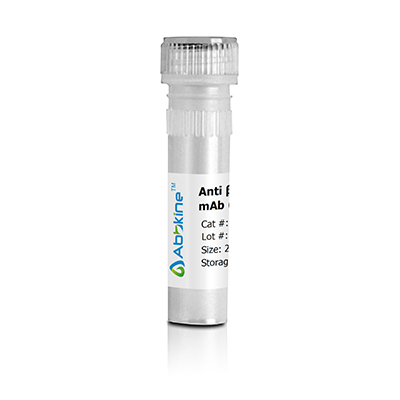APP encodes a cell surface receptor and transmembrane precursor protein(amyloid beta precursor protein)that is cleaved by secretases to form a number of peptides. Some of these peptides are secreted and can bind to the acetyltransferase complex APBB1/TIP60 to promote transcriptional activation, while others form the protein basis of the amyloid plaques found in the brains of patients with Alzheimer disease. In addition, two of the peptides are antimicrobial peptides, having been shown to have bacteriocidal and antifungal activities. Mutations in APP have been implicated in autosomal dominant Alzheimer disease and cerebroarterial amyloidosis (cerebral amyloid angiopathy). Multiple transcript variants encoding several different isoforms have been found for APP.
Phospho-Amyloid-β (T743) Polyclonal Antibody detects endogenous levels of Amyloid-β protein only when phosphorylated at T743.
Optimal working dilutions should be determined experimentally by the investigator. Suggested starting dilutions are as follows: WB: 1:500-1:2000, IHC-p: 1:100-1:300, IF: 1:200-1:1000, ELISA: 1:10000. Not yet tested in other applications.
Amyloid-β (phospho Thr743) Polyclonal Antibody product listed herein is for research use only and is not intended for use in human or clinical diagnosis. Suggested applications of our products are not recommendations to use our products in violation of any patent or as a license. We cannot be responsible for patent infringements or other violations that may occur with the use of this product.
Find more details at http://www.abbkine.com/product/amyloid-β-phospho-thr743-polyclonal-antibody-abp50506.
bio-equip.cn




